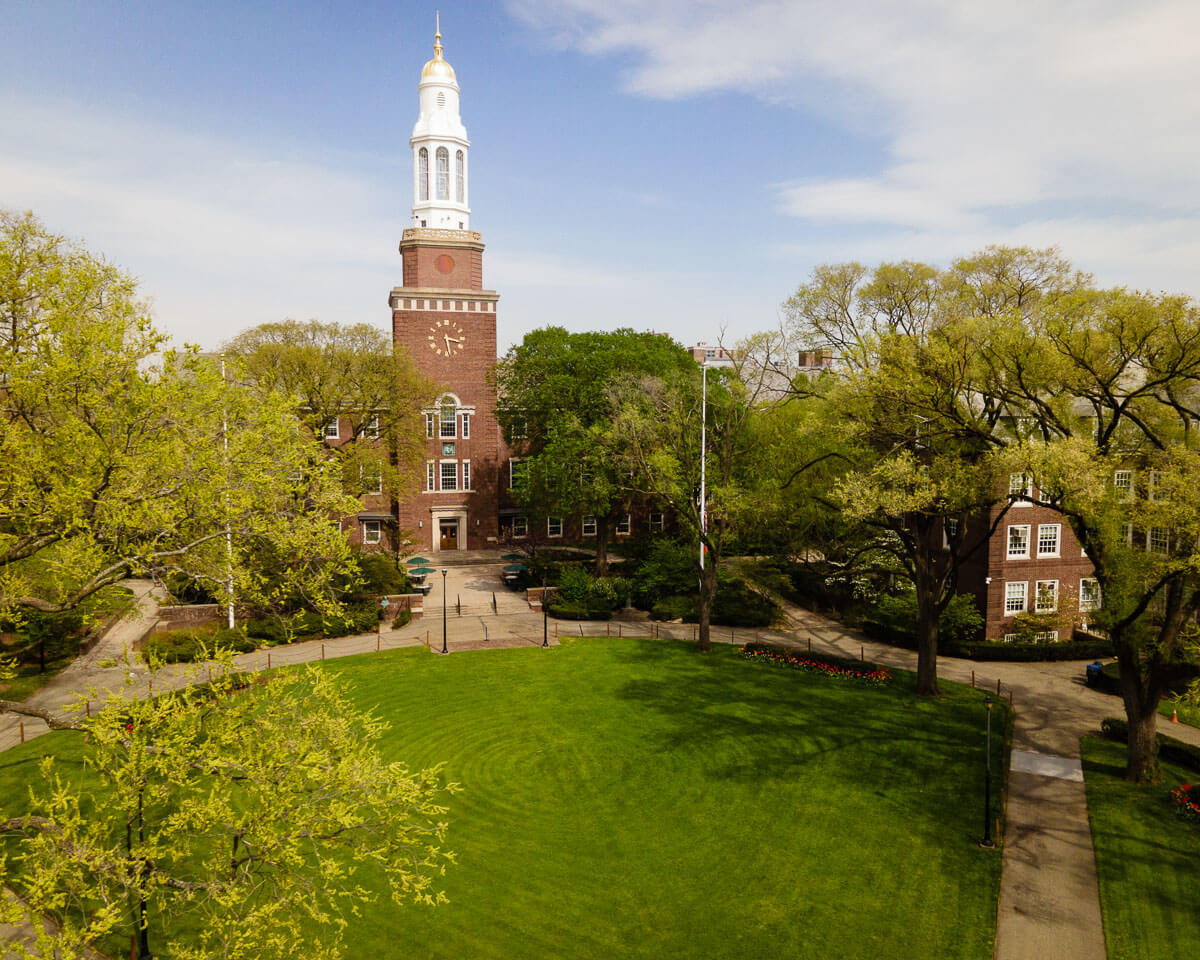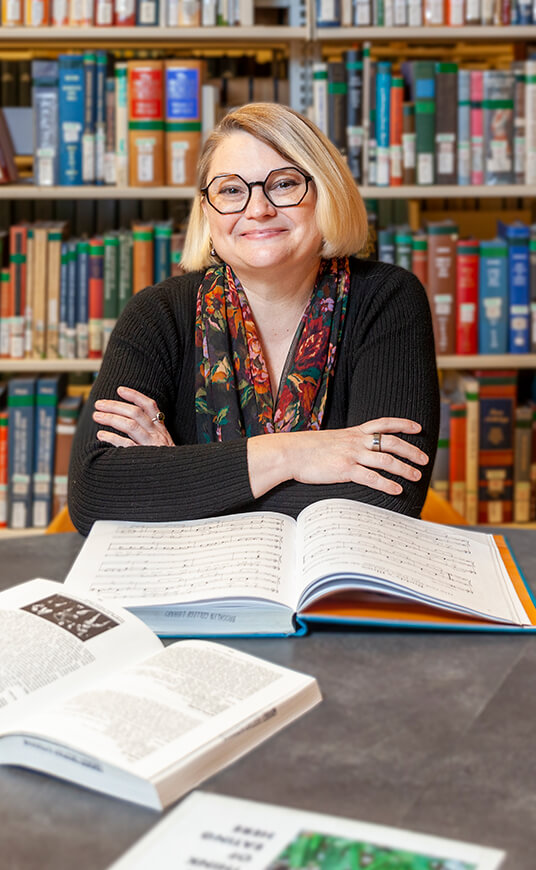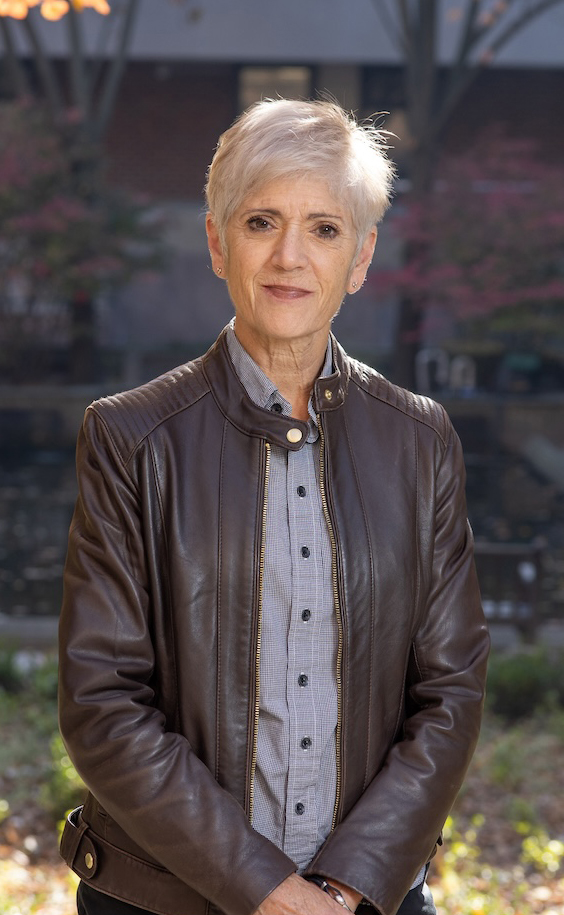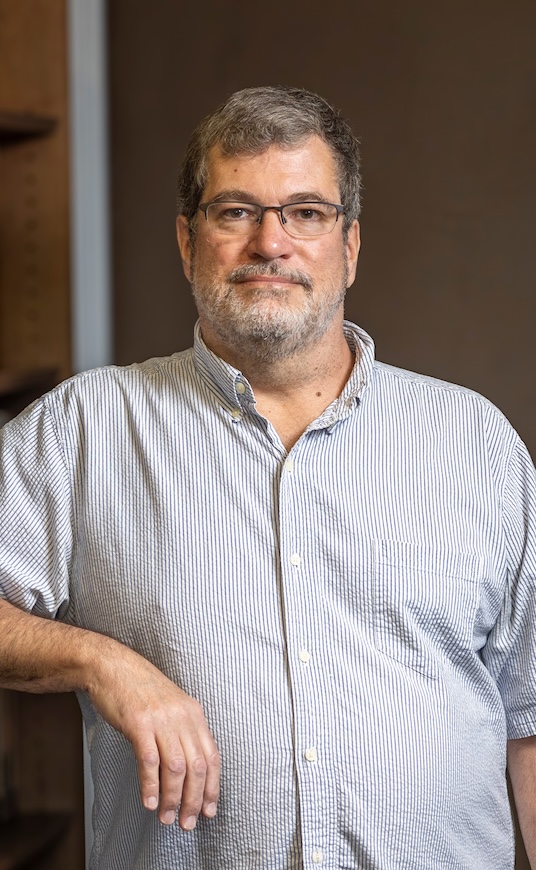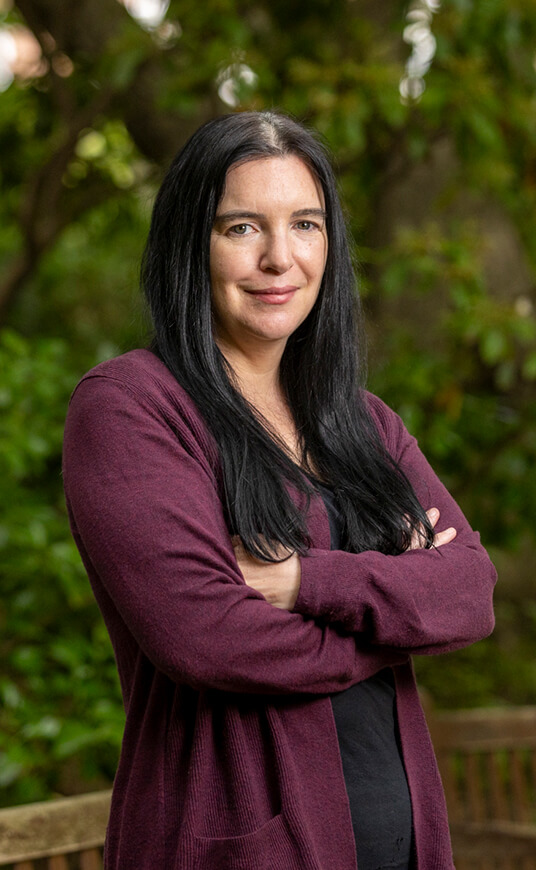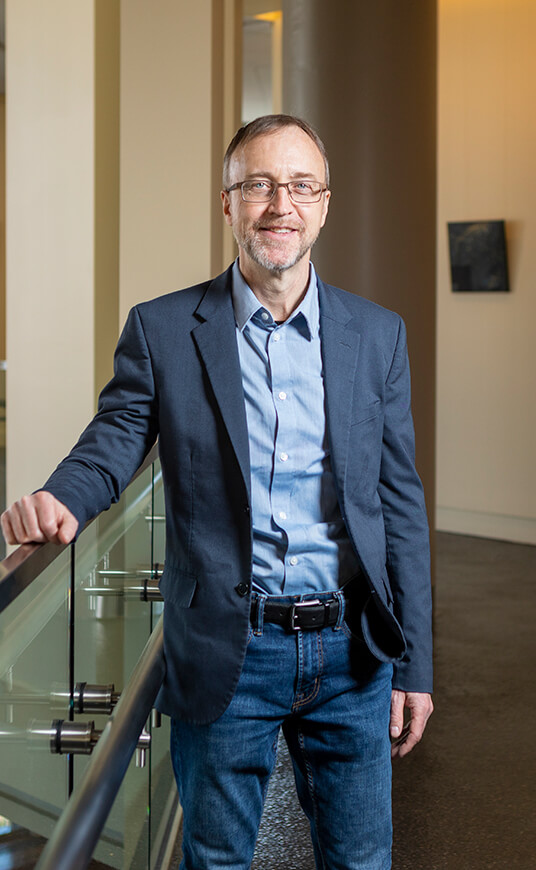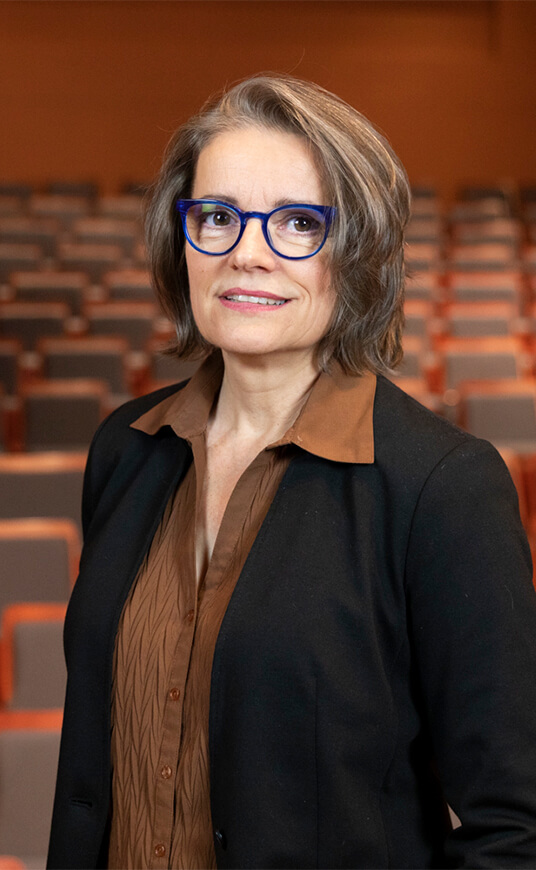Music Education, B.Mus.
School of Visual, Media and Performing Arts
Program Overview
While studying to become a music teacher, you will learn how best to transmit your knowledge of music to students, helping them to discover the enhancements—like creativity, better listening skills, and improved hand-eye coordination—that come with music education. You will explore pedagogical techniques specific to learning music that will help students develop their technical skill, patience, and creativity. You will study with professors from the Brooklyn College Conservatory of Music to hone your musical skills while our department helps you navigate the urban school environment.
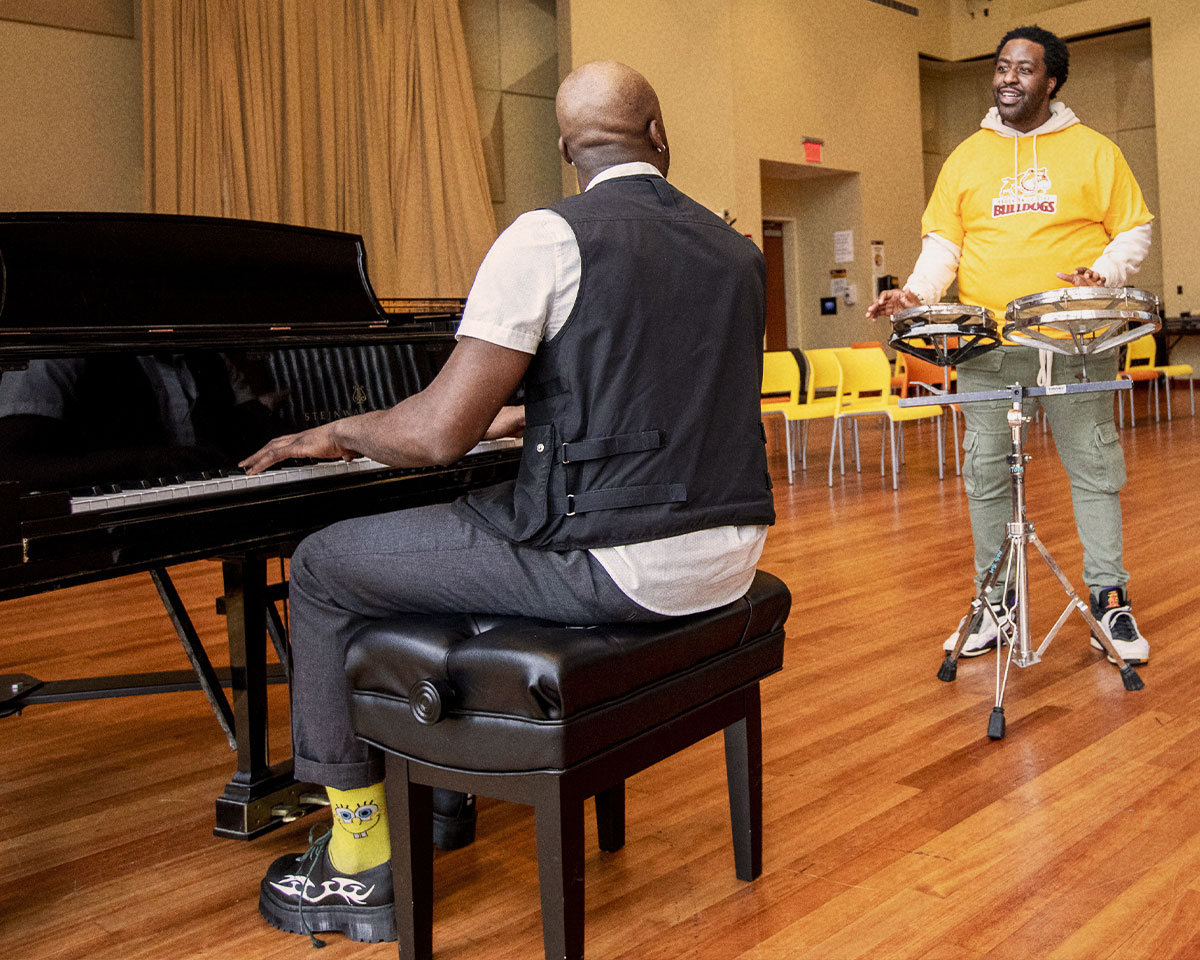
Major Details
The program information listed here reflects the approved curriculum for the 2024–25 academic year per the Brooklyn College Bulletin. Bulletins from past academic years can be found here.
Major Requirements (90 Credits Plus Foreign Language or Proficiency)
Music is a writing-intensive major. Adolescence education (grades 7–12) and special subject programs are writing intensive.
The department chair may allow up to six credits of course substitutions for one or more of these requirements consistent with the educational goals of the program.
Students must complete the Conservatory of Music and Department of Secondary Education requirements in sections I, II, and III below for the B.Mus. degree program in music education.
Students must have a GPA of 2.70 or higher based on a minimum of 30 credits in liberal arts and sciences to take Music 3581, 3582, and 3583.
I. Music Core (60 credits)
- Music 1300, 1400 (6 credits)
- Music 3211, 3212, 3213, 3214 (8 credits)
- Music 3221, 3222, 3223, 3224 (4 credits)
- Music 3235,3236, 3237 (9 credits)
- Music 3241, 3242, or 3243 (12 credits)
- Music 3101 or a course in American or non-Western cultures approved by the director of the Conservatory of Music (3 credits)
- Music 3700–3781, as assigned by the Conservatory of Music (6 credits)
- Music 3791, 3792, 3793, 3794, 3795, and 3796 (12 credits)
II. Music Education Courses (15 credits)
- Music 3350 or 3352 (3 credits)
- Music 2510 (0 credits; minimum of four terms of 2510 required)
- Music 3581, 3582, and 3583 (9 credits)
- Music 3600–3661 (3 credits chosen from these courses)
- Music 5413 (10 credits)
- Music 5414 (2 credits)
III. Education Courses (3 credits)
In addition to the required Bachelor of Music in music education curriculum, music education majors must complete the following pedagogical course (3 credits):
- Secondary Education 2001 (3 credits)
Completion of a special subjects program as part of a major in music education qualifies students for New York State initial certification in special subjects for all grades.
Admission Requirements and Academic Standing
Students must have a GPA of 2.70 or higher based on a minimum of 30 credits in liberal arts and sciences to take Secondary Education 2001.
To take Music 5413 students must have a GPA of 2.75 or higher and permission of the head of the program.
All music courses offered to satisfy the requirements for a major in music must be completed with a grade of C or higher.
All students accepted to the School of Education are required to submit fingerprint verification before signing up for most education classes. Fingerprint verification is required for work in New York City Department of Education schools if you already have fingerprint records or not. Follow these instructions.
Student Learning Outcomes
Performance and Creative Skills
- Ability to sing or play an instrument that evidences interpretative understanding and technical accomplishment at a level appropriate to the student’s degree program and professional goals.
- Excellence in solo and ensemble performance.
- Experience in composition, both original and based on models.
- Experience improvising.
Basic Musicianship
- Ability to read at sight.
- Ability to identify and notate aurally experienced musical events.
- Functional keyboard skills.
- Functional knowledge of the terminology, and grammar of music.
- Understanding of musical elements (rhythm, melody, harmony, timbre, texture, dynamics, form) and their application in aural and score analysis.
Knowledge of Repertory and Its Cultural Context
- Exposure to extensive and varied repertory through performance, analysis, and concert attendance.
- Knowledge of the major periods, composers, genres, and theories of Western art music.
- Acquaintance with music of other traditions—non-Western art music, vernacular ethnic styles, jazz, popular music, folk music.
- Understanding of the relationship of music to other arts and to technology.
- Knowledge of the historical and cultural contexts in which music has been created and performed in different periods and places.
Effective Communication
- Ability to write and speak about music with precision and clarity.
- Ability to articulate and defend critical judgments.
- Ability to apply knowledge and skills in a teaching situation.
- Demonstrated fluency with technologies required for student’s program.
Degree Maps
To help you pursue your studies in the most efficient manner, and to maximize your efforts to graduate in four years, Brooklyn College has created four-year degree maps for all its majors.
View degree maps for this major and others.
Contact
Riki Braunstein, Program Coordinator
409 Whitehead Hall
E: rbraunstein@brooklyn.cuny.edu
P: 718.951.5000 ext. 1176
Lyn-Donna George
2608 James Hall
E: lyn-donna.george62@brooklyn.cuny.edu
P: 718.951.5000 ext. 3771
Or contact:
Office of Undergraduate Admissions
222 West Quad Center
2900 Bedford Avenue
Brooklyn, NY 11210
E: adminqry@brooklyn.cuny.edu
To make an appointment with an undergraduate admissions counselor, visit:
The Support You’ll Find
Brooklyn College is an integral part of the cultural and artistic energy of New York City. Our faculty members in the Conservatory of Music offer incomparable expertise and tremendous talent, and each brings a unique perspective to their teaching and mentoring in and out of the classroom.
Internships and Employers
As a student in the School of Education and the Conservatory of Music, you will complete internships in public and/or private schools throughout the New York City region. The internship is a 14-week, full-time, supervised experience designed to hone the requisite skills and knowledge to work as a childhood education teacher.
